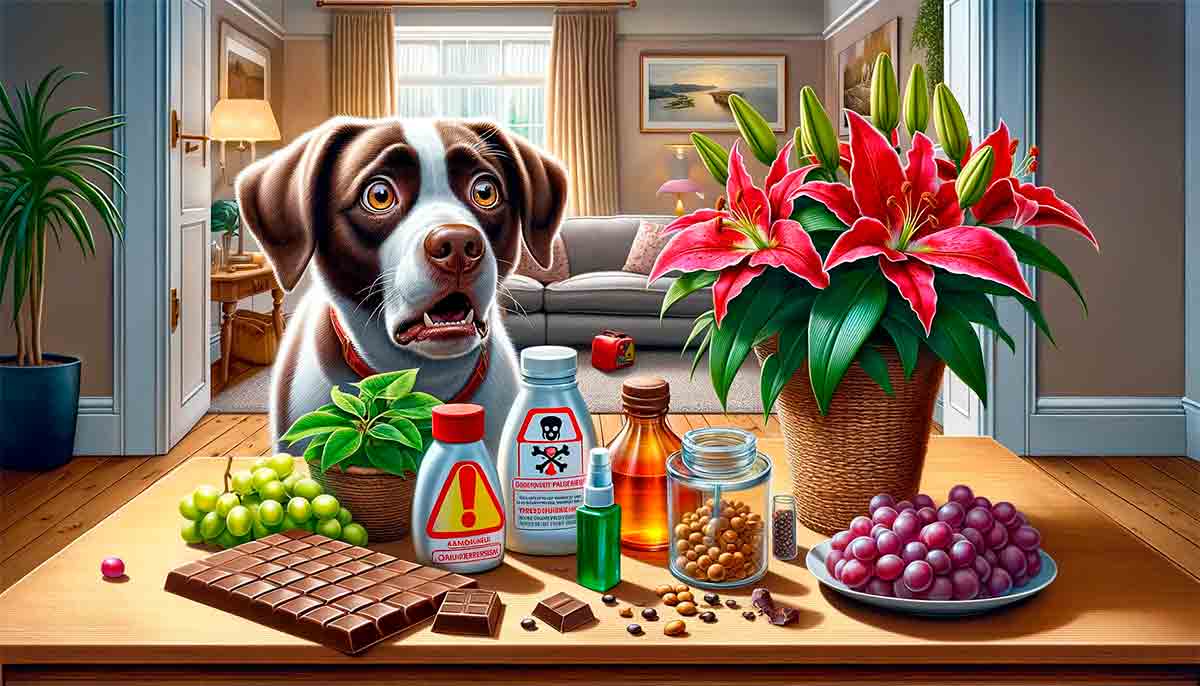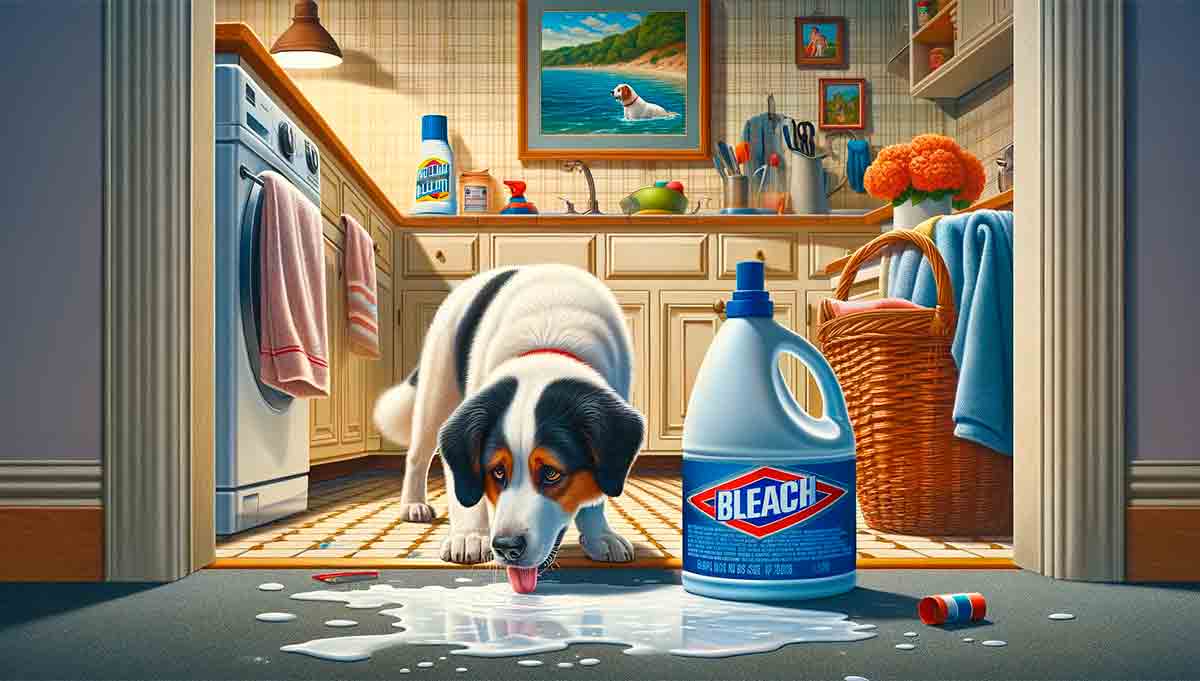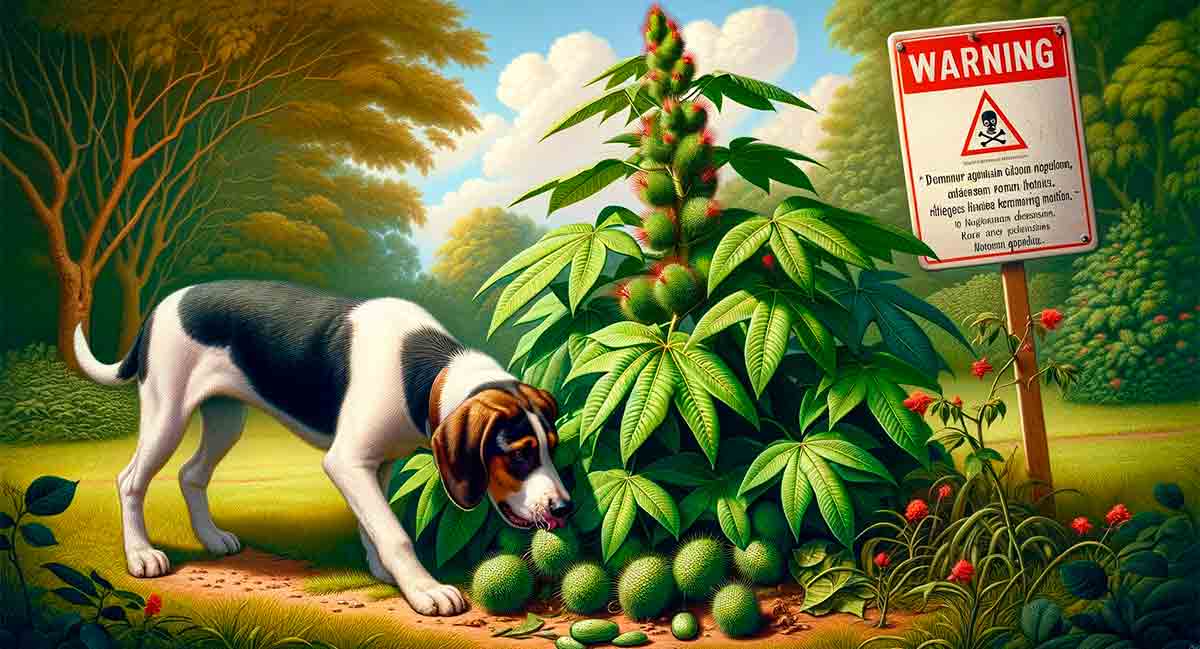
All homes harbor a variety of items and substances that can be dangerous or even fatal if ingested by dogs and cats. You can protect your pet’s health. Just pay attention to some recommendations from the American Veterinary Medical Association.
+ Here is everything you need to know before bringing a pet bird home.
In the kitchen
Many foods are perfectly safe for humans but can be harmful or potentially deadly to pets. To be safe, keep the following temptations out of reach of your little ones:
- Coffee beans
- Fatty foods
- Tea
- Chocolate
- Avocado
- Alcohol
- Yeast dough
- Grapes (fresh or raisins)
- Salt
- Macadamia nuts
- Onions
- Garlic
- Any product containing xylitol (a sweetener extracted from vegetable fibers)
Remember to shield the garbage from the curiosity and appetite of pets, as decomposing food contains molds or bacteria that can cause food poisoning.
Cleaning products

Many of these products can be used safely around pets. However, the key to safe use is to read and follow the product instructions for proper use and storage.
For example, if the label warns you to “keep pets and children away from the area until dry,” follow these instructions to avoid potential health risks.
Products containing bleach safely disinfect many household surfaces when used properly but can cause stomachaches, drooling, vomiting, or diarrhea if swallowed, and respiratory tract irritation if inhaled in a high enough concentration.
Additionally, contact with the skin from concentrated solutions can cause severe chemical burns. Some detergents have the potential to produce a similar reaction, and cats can be particularly sensitive to certain ingredients, such as phenols.
As a general rule, store all cleaning products in a secure cabinet and out of reach of pets. Keep them in their original packaging or in a clearly labeled and tightly closed container.
Insecticides and rodenticides
Just like household cleaning products, read and follow the label instructions before using any type of pesticide in your pet’s environment.
For example, flea and tick products labeled as “for use on dogs only” should never be used on cats or other species, as they can result in serious or even fatal problems.
Always consult your veterinarian about the safe use of these products for your pet. If a pet ingests rat poison, it can result in potentially serious or even fatal illness.
Therefore, when using any rodenticide, it is important to place the poison in areas completely inaccessible to pets. Some of the new rodenticides have no known antidote and can pose significant risks to the safety of animals and people.
Bathroom
All medications should be tightly closed and stored safely away from pets. Made to treat human medical conditions, they can make pets sick.
Never give your pet any medication, including over-the-counter medications, unless directed by your veterinarian.
As a general rule, all medications should be tightly closed and stored safely away from pets.
Medications with higher risk include:
- Nonsteroidal anti-inflammatory drugs, such as aspirin, ibuprofen, or naproxen
- Diet pills and vitamins
- Cold medicines (thermolabile)
- Antihistamines
- Antidepressants
Bath and hand soaps, toothpaste, and sunscreen should also be kept away from your pets. They can cause stomachaches, vomiting, or diarrhea.
Keep toilet lids closed to prevent your pets from consuming water from the bowl, which can irritate their digestive tract.
Bedroom and living room
Although they may smell good, many liquid products contain ingredients that can cause oral ulcers and other problems. So, keep them out of reach of your pets.
A mothball has the potential to seriously sicken a dog or cat. Serious maladies it can cause include irritation of the digestive tract, liver, kidneys, and blood cell damage, swelling of brain tissues, seizures, coma, respiratory tract damage (if inhaled), and even death (if ingested).
Tobacco products, small coins, and alkaline batteries (like those in your remote controls) can also be dangerous when ingested.
Yard and garage
Antifreeze and sodas containing ethylene glycol, even in small quantities, can be fatal to pets. While antifreeze products containing propylene glycol are less toxic than those containing ethylene glycol, they can still be dangerous.
In addition to antifreeze, other substances routinely stored in the garage, including insecticides, plant fertilizers, herbicides, and gasoline, also pose a threat to pets’ health if ingested.
When chemical treatments are applied to lawn areas, keep your pet off the grass for the time recommended by the manufacturer.
If pets are exposed to chemicals or wet granules that stick to their legs or body, they may lick later. As a result, they may experience stomachaches or more serious problems.
Polyurethane adhesives are found in a large number of household products. Some can be very dangerous if ingested. In particular, several brands of expanding wood glue – those containing diphenylmethane diisocyanate (often abbreviated as MDI) – have the potential to form obstructive gastrointestinal masses if ingested.
The ingested adhesive can form an expanding glue ball in the esophagus and/or stomach, creating a firm mass that can be 4 to 8 times the original volume of the glue.
Paint thinners, mineral spirits, and other solvents are dangerous and can cause severe irritation or chemical burns if ingested or if they come into contact with the animal’s skin.
While most latex paints produce mild stomach discomfort, some types of artist paints or other specialties may contain heavy metals or volatile substances that can become harmful if inhaled or ingested.
Plants

There are many indoor and backyard plants that can make your pet sick. Some of the most common vegetables that should be kept away from pets include:
- Certain types of lilies (Lilium and Hemerocallis) are highly toxic to cats, resulting in kidney failure – even if only small amounts are ingested
- Lily of the valley, oleander, yew, foxglove, and monkshood can cause heart problems if ingested
- Sago palms (Cycas) can cause severe intestinal problems, seizures, and liver damage, especially if the nut portion of the plant is consumed
- Azaleas, rhododendrons, and tulips or daffodils can cause intestinal problems, weakness, depression, heart issues, coma, and death
- Castor bean plant can cause serious intestinal problems, seizures, coma, and death. Other plants that can cause digestive disorders include cyclamen, amaryllis, chrysanthemums, pothos, English ivy, philodendron, corn plant, mother-in-law’s tongue, hibiscus, hydrangea, and Indian rubber plant
- Rhubarb leaves and clover contain substances that can lead to kidney failure
- In addition, fungi (such as certain varieties of mushrooms) can cause liver damage or other diseases
- Some other potentially harmful plants include yesterday-today-and-tomorrow plant (species of brunfelsia), autumn crocus (species of Colchicum), and glory lily (species of Gloriosa)
Other dangers
Small items that fall on the floor can be easily swallowed by a curious pet (and which one isn’t?). Such items include coins, buttons, toys for small children, medicine bottles, jewelry, nails, and screws.
The result can be damage to your pet’s digestive tract and the need for surgical removal of the object.
Although electrical cords are especially tempting for ferrets and rodents, who like to chew on almost anything, even an adult dog or cat may find them interesting. Burns or electrocution can result from chewing on live wires.
Avoid this by using cable covers and blocking access to the wires.
Narcotics, including marijuana, can pose fatal risks to your pets if ingested. If you suspect that your pet has ingested any narcotics, inform your veterinarian immediately so that your pet can receive the necessary treatment.
Attention, bird owners!
Most of the dangers listed here also apply to your pet, especially if it can roam freely outside its cage. In addition, birds are particularly vulnerable to inhaled particles and aerosol vapors, tobacco products, certain glues, paints, and air fresheners. Birds should never be allowed in areas where these products are being used.
As a general rule, birds should never be kept in kitchens because smoke, steam, and odors can pose a potentially fatal risk.
With information from the American Veterinary Medical Association

